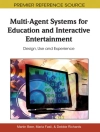In this stimulating and provocative book the editors have drawn together a diverse and international range of respected authors, each of whom has taken a critical approach to the contentious question of how you define and achieve quality early childhood services. It is a book designed to provoke and promote critical dialogue and discourse amongst practitioners and students through critical engagement with the position of the authors within the text. I believe anyone who reads this book will be inspired and motivated to challenge and extend their thinking and professional practice, adopting the critical stance which lies at the heart of quality services for children and families.
Professor Chris Pascal, Director of Centre for Research in Early Childhood (CREC)
Early childhood is a complex and important area of study where it is important to develop your critical thinking and reflect upon key issues. This book will help do both.
It explores interrelated topics such as:
- Child development
- Play
- Safeguarding
- Professionalism
- Curriculum and Policy
Each chapter will not only engage with what you need to know but help you develop your academic skills.
The book also comes with lots of online resources and include:
-
Podcasts from the authors of each chapter so you can better understand the key concepts
-
Power Points to help you revise the essential information
- Journal articles related to each chapter provide further reading
Michael Reed and Rosie Walker are both Senior Lecturers in Early Childhood at the Institute of Education, University of Worcester.
表中的内容
Part I: Developing Critical Reflection – Michael Reed and Rosie Walker
Chapter 1: The Undergraduate Journey – Michael Reed, Linda Tyler and Rosie Walker
Chapter 2: Reflective Practice – Karen Hanson and Karen Appleby
Chapter 3: The Ethical Practitioner with Children and Families – Sue Callan
Chapter 4: Critical Thinking – Jennifer Worsley and Catherine Lamond
Chapter 5: ICT and Learning for Students: A New Way of Thinking – Michelle Rogers
Part II: The Developing Child – Michael Reed and Rosie Walker
Chapter 6: Deliberating on Practices with Young Children in the United States – Mary Benson Mc Mullen
Chapter 7: ′Vygotsky Rocks!′ An Argument That Helps Use Lev Vygotsky′s Ideas in Early Years Practice – Anna Popova
Chapter 8: The Developing Child: Some Critical Perspectives – Jackie Musgrave
Chapter 9: Play and Creativity: How Important Is This in Terms of the Developing Child? – Frances Brett
Chapter 10: Repositioning Developmentalism – Anna Kilderry
Part III: Taking a Holistic View – Michael Reed and Rosie Walker
Chapter 11: Security and Attachment – Robin Balbernie
Chapter 12: Developing Child in Society: Making Transitions – Aline Wendy Dunlop
Chapter 13: Taking a Holistic View: Critically Examining Complex Professional Issues – Claire M Richards
Chapter 14: The Language of Special Educational Needs: Learning from the Past to Build the Future – Caroline Jones
Chapter 15: Supporting Children with Complex Health Needs and Life-Limiting Conditions and Their Families – Erica Brown
Part IV: Policy and Practice – Michael Reed and Rosie Walker
Chapter 16: Whose Curriculum Is It Anyway? – Derval Carey-Jenkins
Chapter 17: Approaches to the Early Years Curriculum: A Critical View from Wales – Sian Wyn Siencyn
Chapter 18: Parental Involvement and Partnership with Parents: ‘T′ain′t What You Do (It′s the Way That You Do It)’ – Martin Needham and Dianne Jackson
Chapter 19: Supporting Parents – Josephine Bleach
Chapter 20: Policy into Practice: Implementing the Early Years Learning Framework for Australia from a Western Australian Perspective – Sandra Hesterman
Part V: Professional Roles and Responsibilities – Michael Reed and Rosie Walker
Chapter 21: Professional Roles and Responsibilities: Professional Practice and Early Childhood Today – Michael Gasper
Chapter 22: Integrated Working in Practice: Why Don′t Professionals Talk to Each Other? – Alison Nicholls
Chapter 23: Children′s Developing Identity – Victoria Cooper
Chapter 24: Assessment: A Critical Companion to Early Childhood Pedagogy – Alma Fleet
Chapter 25: The Responsibility of the Practice-Based Researcher – Carla Solvason
关于作者
Rosie Walker coordinates a Foundation Degree with seven partner institutions. She is a Senior Lecturer within the Centre for Early Childhood, within the Institute of Education at the University of Worcester. She has supervised many research projects with Foundation Degree, BA and Top up students as well as at Masters level and is responsible for managing student practice based experience. She has published book chapters, co-authored a textbook exploring practice based research as well as journal articles. Professionally, she has managed two large children’s centres and is a qualified Social Worker. She has worked in a variety of childcare settings including child protection teams. Rosie is also the author of Success with your Early Years Research Project (2014) with Carla Solvason, published by SAGE.












